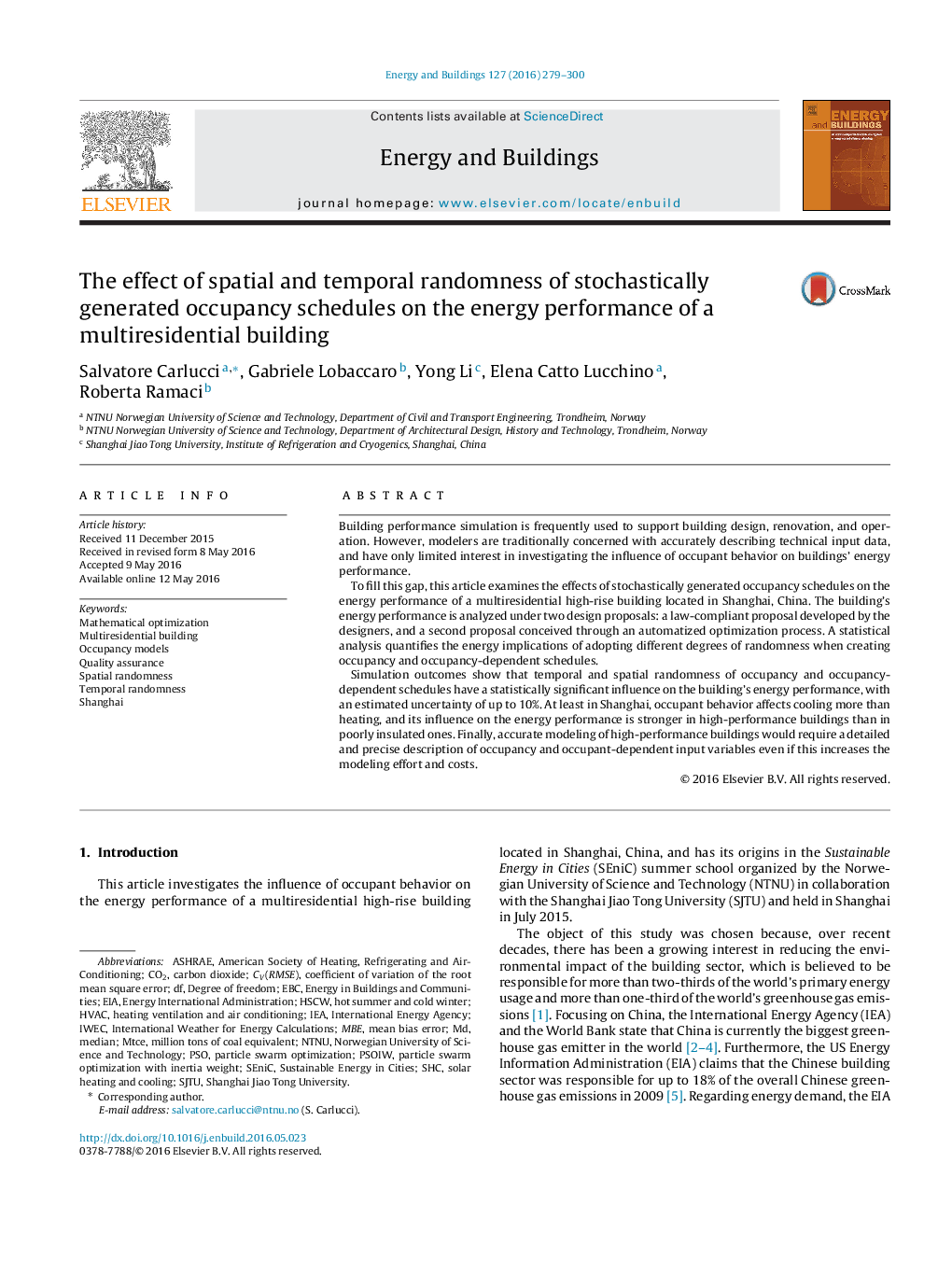| کد مقاله | کد نشریه | سال انتشار | مقاله انگلیسی | نسخه تمام متن |
|---|---|---|---|---|
| 261982 | 504007 | 2016 | 22 صفحه PDF | دانلود رایگان |
• The study has its origins in the Sustainable Energy in Cities summer school held in Shanghai, China, in July 2015.
• It statistically explores the effect of temporal and spatial randomness of stochastically generated occupancy schedules on a building’s energy performance.
• It adopts a scalarized single-objective optimization to minimize heating and cooling energy needs.
• It presents a quality assurance procedure for numerical models of buildings that cannot be calibrated using measured data.
• Modeling of high-performance buildings requires a (spatially) detailed and (timely) precise description of occupancy and occupant-dependent input variables.
Building performance simulation is frequently used to support building design, renovation, and operation. However, modelers are traditionally concerned with accurately describing technical input data, and have only limited interest in investigating the influence of occupant behavior on buildings’ energy performance.To fill this gap, this article examines the effects of stochastically generated occupancy schedules on the energy performance of a multiresidential high-rise building located in Shanghai, China. The building’s energy performance is analyzed under two design proposals: a law-compliant proposal developed by the designers, and a second proposal conceived through an automatized optimization process. A statistical analysis quantifies the energy implications of adopting different degrees of randomness when creating occupancy and occupancy-dependent schedules.Simulation outcomes show that temporal and spatial randomness of occupancy and occupancy-dependent schedules have a statistically significant influence on the building’s energy performance, with an estimated uncertainty of up to 10%. At least in Shanghai, occupant behavior affects cooling more than heating, and its influence on the energy performance is stronger in high-performance buildings than in poorly insulated ones. Finally, accurate modeling of high-performance buildings would require a detailed and precise description of occupancy and occupant-dependent input variables even if this increases the modeling effort and costs.
Journal: Energy and Buildings - Volume 127, 1 September 2016, Pages 279–300
